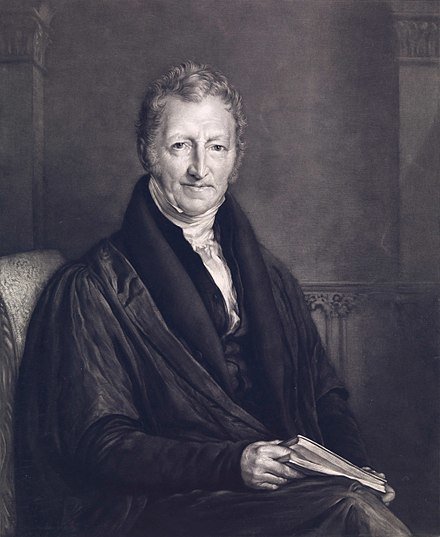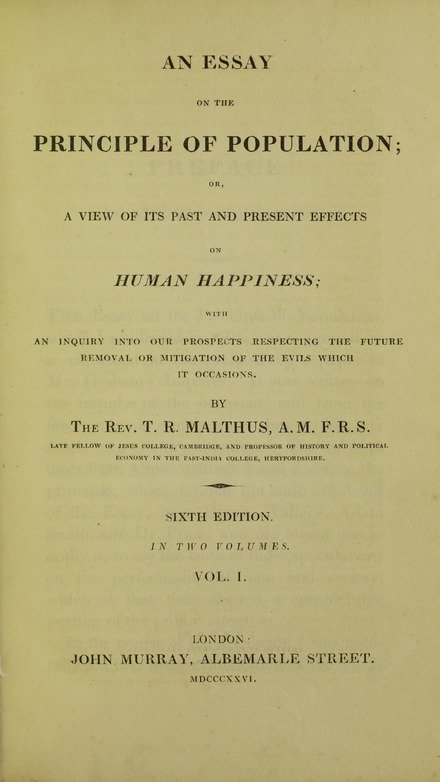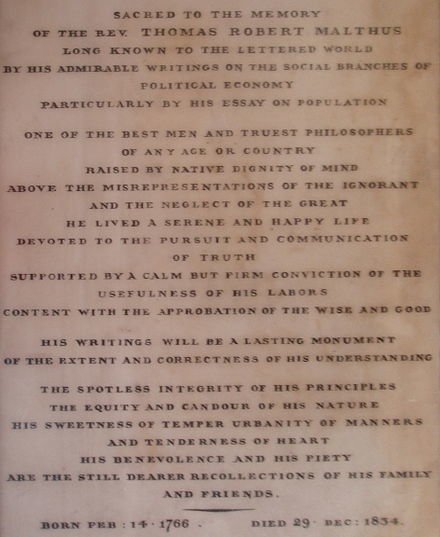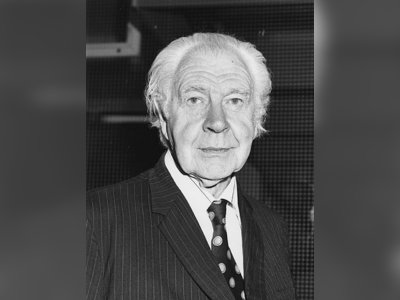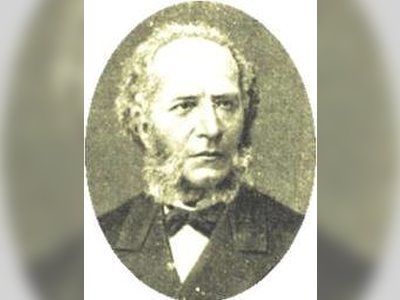Thomas Robert Malthus - The Population Growth Trap, 1798
Thomas Robert Malthus, a prominent English cleric and economist, left an enduring legacy with his groundbreaking work on population growth and its impact on society. His Malthusian Trap, which highlighted the cyclical relationship between population growth and resources, generated significant debates and discussions across various fields. While Malthus faced criticism for certain aspects of his theories, his ideas greatly influenced subsequent generations, including evolutionary biology and economic thought. His commitment to truth and integrity, as well as his pursuit of knowledge, have solidified his position as one of the most esteemed thinkers in history. The impact of Malthus's ideas on British heritage and the broader intellectual landscape endures to this day, making him a much-debated and celebrated figure in the annals of economic and social thought.
Contribution to British Heritage:
Thomas Robert Malthus was an English cleric, scholar, and influential economist who made significant contributions to the fields of political economy and demography. His most renowned work, "An Essay on the Principle of Population," published in 1798, delved into the relationship between population growth and food production. Malthus's ideas sparked intense debates and discussions across economic, political, social, and scientific thought, leaving a lasting impact on British heritage and influencing subsequent generations of thinkers.
Early Life and Education:
Thomas Robert Malthus was born on 14 February 1766 to Henrietta Catherine Graham and Daniel Malthus. He grew up in The Rookery, a country house in Westcott, near Dorking in Surrey. Malthus received his early education at home in Bramcote, Nottinghamshire, and later attended the Warrington Academy from 1782. He continued his studies under the tutelage of Gilbert Wakefield.In 1784, Malthus entered Jesus College, Cambridge, where he excelled in various subjects and graduated with honors in mathematics. He became a Fellow of Jesus College in 1791 and was ordained as an Anglican cleric in 1789, serving as a curate at Oakwood Chapel in Surrey.
The Population Growth Trap:
Malthus's seminal work, "An Essay on the Principle of Population," presented a groundbreaking theory known as the Malthusian Trap. In this essay, he observed that an increase in a nation's food production temporarily improved the well-being of the population. However, the improved living conditions led to population growth, which, in turn, offset the initial gains in per capita production, perpetuating a cycle of hardship and scarcity for the lower classes.According to Malthus, human societies had a natural propensity to utilize abundance for population growth rather than for maintaining a high standard of living. He argued that populations tend to grow until the lower class experiences hardship, want, and increased vulnerability to famine and disease. This grim scenario, often referred to as the Malthusian catastrophe, highlighted the challenges of sustaining long-term improvements in living conditions.
Malthus believed that population growth was inevitable whenever conditions improved, hindering the realization of a utopian society. He asserted that "the power of population is indefinitely greater than the power in the earth to produce subsistence for man." This perspective, deeply influenced by his Anglican beliefs, led him to view the situation as divinely imposed to teach virtuous behavior. Malthus contended that population growth must be limited by "moral restraint, vice, and misery."
Impact and Legacy:
Malthus's views on population and economic development had a profound and enduring impact on subsequent generations. His work laid the theoretical foundation for the prevailing wisdom on global hunger and famines for nearly two centuries. Although his predictions about the industrial revolution were criticized for their inaccuracies, his insights into population dynamics and resource constraints remain relevant and thought-provoking to this day.Malthus's ideas also found resonance among pioneers of evolutionary biology, most notably Charles Darwin and Alfred Russel Wallace. Their work on natural selection and the struggle for existence echoed Malthus's observations on the competition for limited resources in human populations.
Controversy and Criticism:
Malthus's theories were met with both acclaim and opposition. He faced criticism for his failure to predict the transformative impact of the industrial revolution, which significantly increased food production and standards of living. Additionally, some argued that his pessimistic outlook ignored the potential for human ingenuity and technological progress to alleviate scarcity.
Later Life and Legacy:
Throughout his life, Malthus continued to engage in intellectual debates and discussions. He traveled extensively, collecting population data and deepening his understanding of economic and social dynamics. In his later work, "Principles of Political Economy," published in 1820, Malthus expanded on the concept of "general glut" and advocated for policies to address economic imbalances.
Thomas Robert Malthus passed away suddenly on 23 December 1834 due to heart disease. His contributions to economics, demography, and social thought have left an indelible mark on British heritage and the broader fields of study influenced by his ideas. Malthus's commitment to truth, integrity, and his pursuit of understanding continue to inspire scholars and thinkers, making him one of the best-regarded economists and philosophers in history.
Epitaph:
The epitaph of Thomas Robert Malthus in Bath Abbey reads as follows:
"Sacred to the memory of the Rev THOMAS ROBERT MALTHUS, long known to the lettered world by his admirable writings on the social branches of political economy, particularly by his essay on population.
One of the best men and truest philosophers of any age or country, raised by the native dignity of mind above the misrepresentation of the ignorant and the neglect of the great, he lived a serene and happy life devoted to the pursuit and communication of truth, supported by a calm but firm conviction of the usefulness of his labours, content with the approbation of the wise and good.
His writings will be a lasting monument of the extent and correctness of his understanding.
The spotless integrity of his principles, the equity and candour of his nature, his sweetness of temper, urbanity of manners and tenderness of heart, his benevolence and his piety are still dearer recollections of his family and friends.
Born 14 February 1766 – Died 29 December 1834."
- Thomas Robert Malthusen.wikipedia.org
